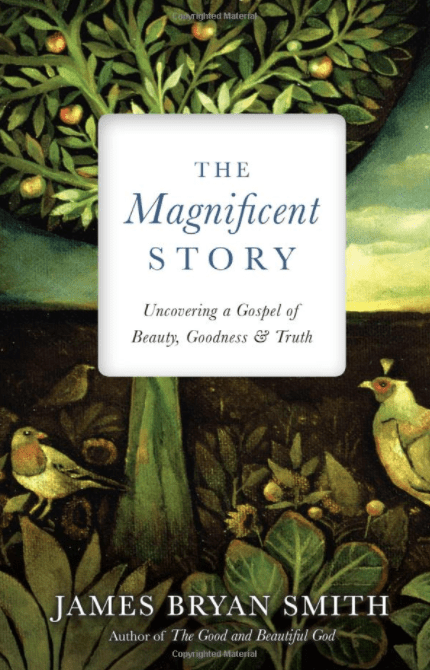 Dallas Willard taught us that our relationship with God is interactive and that prayer was a genuine conversation with God. This can be seen in most of his books but Hearing God is perhaps the best example. (By the way, Willard also defined the kingdom of God as this “interactive relationship” and this is a good illustration of what I call the pleated pants theory of the kingdom in Kingdom Conspiracy. And I have a piece in Relevant magazine on this topic here.)
Dallas Willard taught us that our relationship with God is interactive and that prayer was a genuine conversation with God. This can be seen in most of his books but Hearing God is perhaps the best example. (By the way, Willard also defined the kingdom of God as this “interactive relationship” and this is a good illustration of what I call the pleated pants theory of the kingdom in Kingdom Conspiracy. And I have a piece in Relevant magazine on this topic here.)
What then is prayer? An interactive relationship, a conversation? A two-way or a one-way conversation?
Tim Keller, in his new book Prayer: Experiencing Awe and Intimacy with God, defines prayer as an instinct and also as a spiritual gift. As a gift, it is a response to God’s revelation (and he leans toward revelation in Scripture) and when this kind of prayer occurs it can be “heaven in the ordinary” (50).
He grounds this “conversing with God” (hearing from God is not discussed here) in the love of God, and this is a quote worth your careful reading:
If God were impersonal, as the Eastern religions teach, then love — something that can happen only between two or more persons— would be an illusion. We can go further and say that even if God were only unipersonal, then love could not have appeared until after God began to create other beings. That would mean God was more fundamentally power than he was love. Love would not be as important as power.
The Christian doctrine of the Trinity, however, teaches that there is one God in three persons who have known and loved one another from before the dawn of time.” If God is triune, then words and language are seen in a new light (50-51, italics mine).
Very helpfully, then, prayer is grounded in the Trinity and, in particular, in the love of Father and Son and Spirit as the grounding of all love. There is in the Trinity “divine discourse” (51). Communication with God or from God to us then is not beyond words but wordy.
Rather, Christian prayer is fellowship with the personal God who befriends us through speech (52).
God’s “word” is found in his Word, both living and written, and this is God’s part in the conversation of prayer. Here are two strong claims (54-55).
We know who we are praying to only if we first learn it in the Bible. And we know how we should be praying only by getting our vocabulary from the Bible….It is therefore essential to the practice of prayer to recognize what [Eugene] Peterson calls the “overwhelming previousness of God’s speech to our prayers ”…. We should “plunge ourselves into the sea” of God’s language, the Bible. We should listen, study, think, reflect, and ponder the Scriptures until there is an answering response in our hearts and minds. It may be one of shame or of joy or of confusion or of appeal—but that response to God’s speech is then truly prayer and should be given to God.
He is less than convinced of the more mystical teachings about prayer at work in the church today, though Keller is well-known for the gentleness of his disagreements. I don’t see a two-way conversation in Keller’s approach. So, notice this:
… though they are not without their merits, the methods of “Centering Prayer” and “the Jesus Prayer” are not entirely appropriate for those who understand prayer as a response to God’s verbal revelation in the Bible and as a gift given to those secure in God’s grace (57).
He is not against silence in God’s presence, but that silence is informed by what we have learned from God’s Word.
What kind of words are to be used in prayer? All kinds, depending on the words of God to us. He’s right in this:
We would never produce the full range of biblical prayer if we were initiating prayer according to our own inner needs and psychology. It can only be produced if we are responding in prayer according to who God is as revealed in the Scripture (60).
He lines himself with Eugene Peterson but not with Anne Lamott (60-61).
Lamott memorably names three of the traditional categories of prayer: Help (supplication), Thanks (thanksgiving), and Wow (adoration). It is striking, though, that the book leaves out one of the most crucial classical categories of prayer, namely confession and repentance. If we contrast Lamott’s short book with similar-length treatises on prayer by Augustine and Luther, and with the Lord’s Prayer itself, the lack of emphasis on confession is a glaring omission . My guess is this is because she uses a starting point that is not the knowledge of God in the Bible. We should not get “bogged down” in who God is. We should just pray. The problem is that if God is not the starting point, then our own perceived emotional needs become the drivers and sole focus of our prayer. That will inevitably narrow prayer down from its full biblical spectrum.
Are the prayers of the Bible responses to Bible reading, to Bible immersion? Does Keller’s view expressed here fit the prayers of the Bible? Do you think prayer is a one-way conversation in response to God’s Word/revelation or a two-way conversation of hearing, speaking and speaking, hearing?










